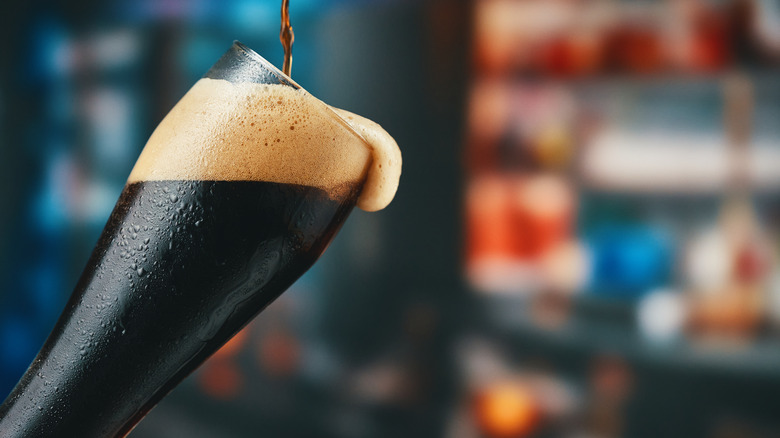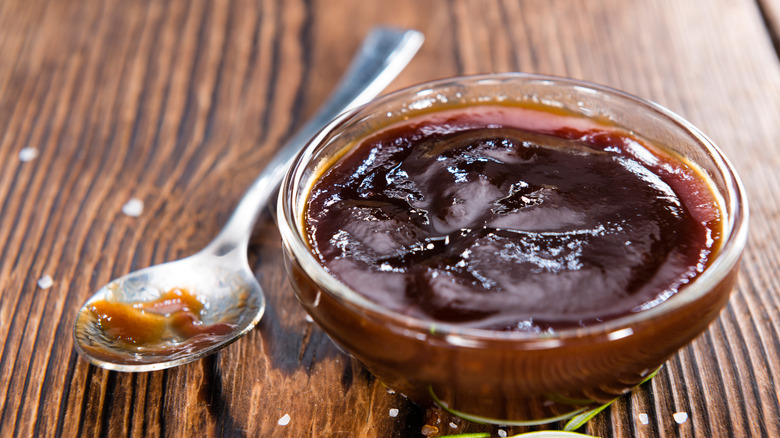How To Incorporate Dark Beer Into Summer Dishes, According To An Expert
As an ingredient, beer is wonderful to cook with, and — as a bonus — something refreshing to sip while you labor. There are over 100 beer styles, with breweries constantly experimenting with new varieties that range in the amount of alcohol by volume, hoppiness, and flavor profile, leaving some types 'lighter' than others.
When added to recipes, alcoholic beverages are flavor enhancers, which is why we're told to cook with something we'd drink (no problem) — whether it's wine, rum, or in this case, beer. Some alcohol burns off during cooking, leaving the concentrated flavors behind to enhance the dish. Beer's combination of yeast, malt, and hops complements long-simmering dishes like braises and stews traditionally made in the winter, but it also works well in sweet recipes like chocolate stout pudding and homemade barbecue sauces.
Food Republic spoke to expert Jessie Massie, the executive chef at the Sierra Nevada Taproom in Mills River, North Carolina, who thinks summertime is the perfect season to experiment with dark beers in homemade barbecue sauces, taking your "Master of the grill" status to the next level.
Homemade dark beer-infused barbecue sauce
America can be divided into regions solely based on its barbecue sauce recipes. Some cities prefer a tangy thin sauce — while others will argue that its thick, sweet version is better. We're not here to judge and think there's a grilled chicken thigh perfect for all types of barbecue sauce, from Kansas City to Memphis style, which is only improved by adding dark beer.
Similar to Tennessee Whiskey barbecue sauce, Massie uses a barrel-aged stout, which roasts the barley leaving a depth often associated with the taste of chocolate or coffee, to add "flare" to barbecue sauces. Massie suggests starting the recipe by sautéing aromatics like diced onions and peppers in a saucepan over medium heat. Once the veggies have cooked down, use a dark beer like Guinness to deglaze the pan, scraping all the browned bits, called fond, stuck to the pan's bottom, incorporating another layer of flavor.
Add tomato paste, brown sugar, and spices like chili powder, cayenne, and mustard powder to customize your sauce. Allow it to simmer for a few hours, developing its flavor as it thickens, before slathering it on one of your favorite grilling recipes. For a smooth consistency, puree the cooked sauce before using it on the grill or in the oven.
Homemade barbecue sauce will keep for several months in the refrigerator and can be frozen for extended storage. Allow the unused sauce to cool before storing it in the fridge in an airtight container.


